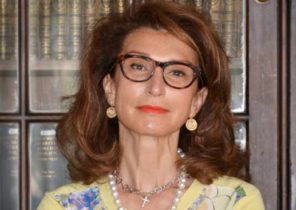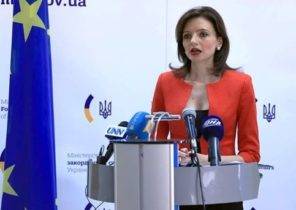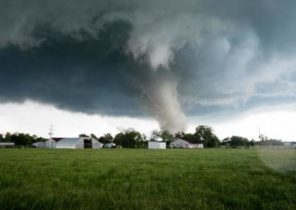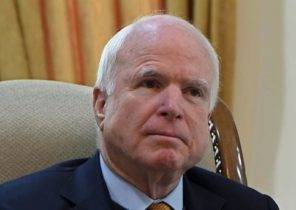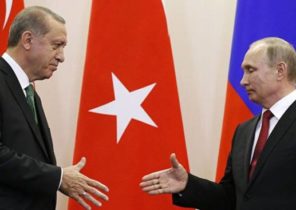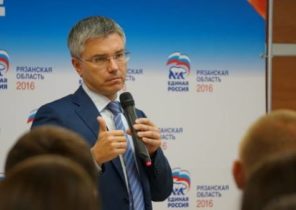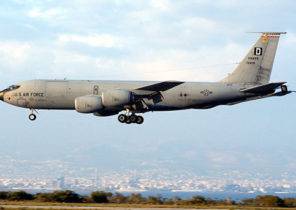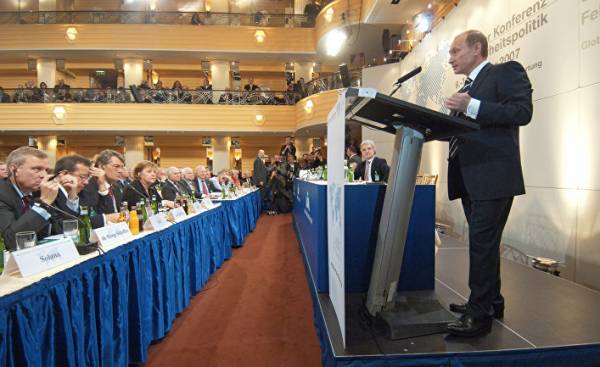
“Russia is a country with a thousand year history, and has practically always used the privilege to carry out an independent foreign policy. We are not going to change this tradition today”.
These historic words were said 10 years ago, in February 2007 at the Munich conference on security issues. The Kremlin leader shocked the audience, suddenly talking about the horrors of the unipolar world, of Western perfidy and symmetrical response of the Russian Federation. The most astute political analysts have described Putin’s Munich speech as the beginning of a new cold war — and time proved them right.
Ten years ago in Munich, sounded the first alarm bell; an unequivocal signal that the international community and anticipating future events.
The idea is that even then, Putin’s message was to mobilize all stakeholders — as Western leaders and Russia’s closest neighbours.
But, while assessing ever since the way, can only shrug. The years following the Munich demarche of the Kremlin, became a story about the lost time for all, except for the Russian revanchists. Sadly, on the General background Russia looks like a model of persistent advancement to the dream.
Russia-2017 realizes exactly what Russia 2007 voiced the words. In the focus of Mr. Putin, so it is in the determination — even if the Kremlin’s determination is akin to that in medical practice limit straitjackets.
All of Putin’s steps in the past decade — from war with Georgia to flirting with European politicians, from the Kharkiv agreements to the Crimean operations — pursued the same goal of geopolitical revenge.
Yes, some of it was unplanned, impulsive, provoked by personal complexes and phobias of GDP. But the Kremlin proves that irrational obsession is able partly to replace the strategy.
To this obsession the Western world was completely unprepared. Although the Russian words, and deeds after 2007 were quite eloquent, they tried to interpret it as gently as possible, not denying the Kremlin to civilization and fending off the specter of the cold war. Repulsive puzzle of individual fragments developed in the West very late — only after Russia decided to first open annexation in post-war Europe.
In fairness it should be noted that all these years the West has been continuously transformed their abstracts Munich, Mr Putin voiced in a half-forgotten world of George Bush, Tony Blair and Jacques Chirac.
And foreign democracy and alternation of power has always been regarded in the Kremlin as an enemy’s weak spot. As a chance to get rid of inconvenient leaders, to reset the accumulated in the West experience and get a head start, taking advantage of the illusions of the new political generation.
In fact, of all the influential Western leaders of Putin’s Munich speech found only Angela Merkel. And today it is the main enemy of the Kremlin and consistent lobbyist of anti-Russian sanctions. Coincidence? Obviously not.
The head of Germany has a really extensive background in the relationship with Putin — from deceptively constructive and almost friendly to the current tough. Mrs. Merkel is not necessary to study the Kremlin leader through trial and error with everything there is trial and error it has been done, all of her illusions about GDP in the past.
Unfortunately, this is not true of many other European policies and especially about the new American President. In the West, until it formed a democratic mechanism of succession that allows to effectively counter the Kremlin, regardless of the change of personalities.
However, Ukrainians should not blame the West for inconsistency and underestimation of the Russian threat. Suffice it to recall the problems that worried ten years ago ourselves.
If Russia-2017 realizes that Russia-2007 voiced the words; Ukraine-2017 Ukraine-2007 look like two different planets. Now, after the Euromaidan, the annexation of Crimea and hybrid war in the Donbas, the agenda seems insulting petty and childish.
Lived in Ukraine, when in Munich has already made the Kremlin a message that is directly linked to our future?
The second Premiership of Yanukovych; a protracted political crisis in Kiev, shot by Max “Mad” Kurochkin; President Yushchenko dissolves the Parliament; “Tsushko — hero!”; early parliamentary elections; “the Country needs Lytvyn!”; young team Chernovetsky deribanit capital; “a Little the text is moronic is written” — “Mike, all we rewrite, you boring person, you no money will not give”; the shaky coalition of BYUT and nuns in the new Parliament; regional Lukyanov steals the speaker Yatsenyuk card to vote; Yulia Tymoshenko wins the coveted Premiership trophy, which soon will be fully depreciated by the global financial crisis…
Ideally, the year 2007 was to become for Ukraine a year of consolidation, assess our situation and develop strategies for the future. In reality, 2007 was a year of opportunities trampled and stolen from the country time.
Of course, today one would not rake up the past and not be sad about the lost chances — but there is one serious “but”. Despite the experiences of the Ukraine during the war, a considerable part of our establishment to continue to exist in the coordinates of a decade ago.
In the same petty little world, where nothing is more important than political bargaining, the division of posts, voter bribery and corruption schemes. And if ten years ago such a mentality is not too contrasted with the life of the whole country, now he looks like a grown-up slap of the Ukrainian society. In 2007, populism and irresponsibility on the Pechersk hills meant stealing our prospects in 2017 they mean killing of our prospects.
Russian revanchism can be countered only real change, the Russian obsession — a sober view of things, Russian arrogance is hard work. And then there is a chance that Ukraine-2027 will be implemented at least part of what is announced in Ukraine-2017.
